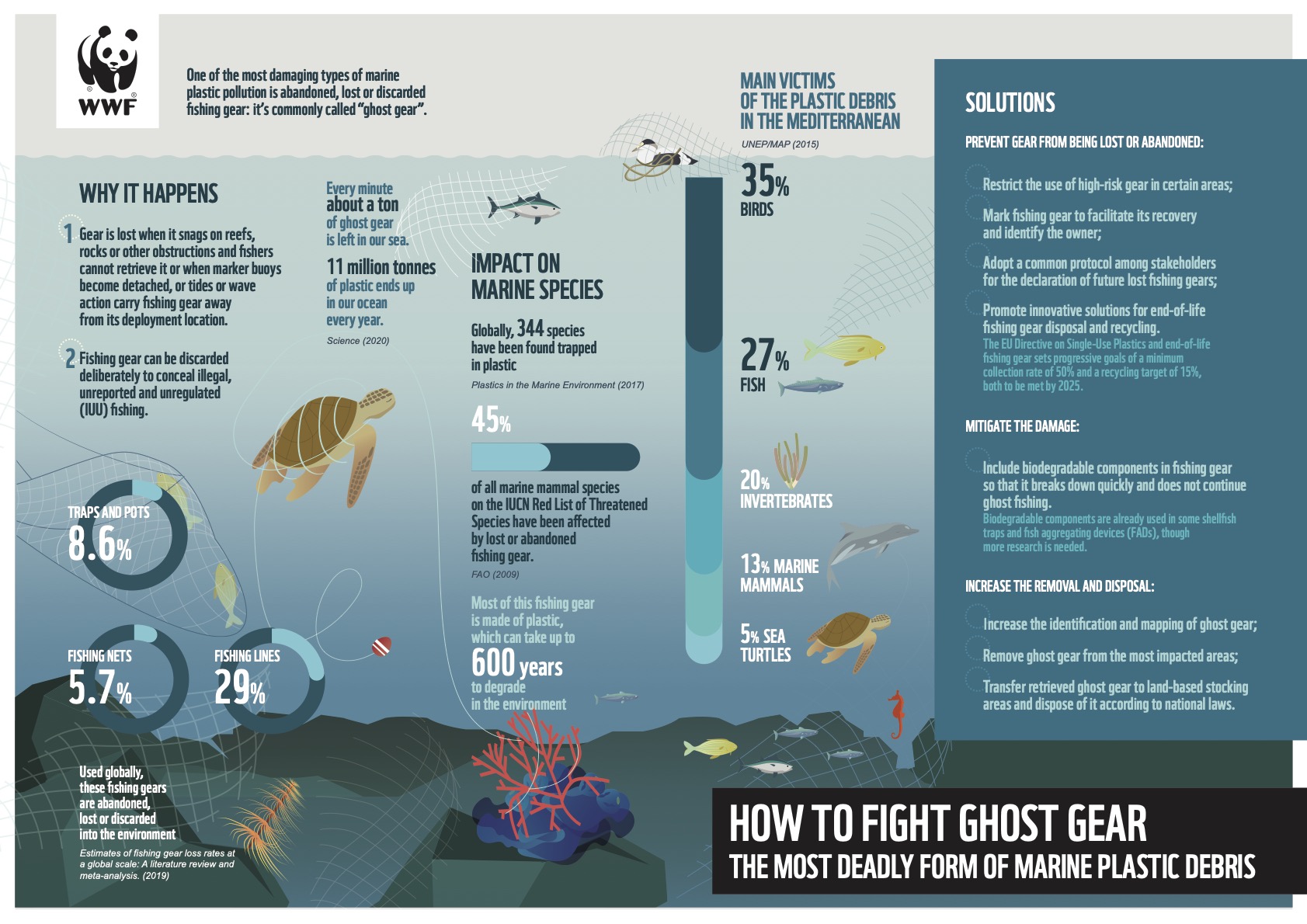The WWF is run at a local level by the following offices...
- WWF Global
- Adria
- Argentina
- Armenia
- AsiaPacific
- Australia
- Austria
- Azerbaijan
- Belgium
- Bhutan
- Bolivia
- Borneo
- Brazil
- Bulgaria
- Cambodia
- Cameroon
- Canada
- Caucasus
- Central African Republic
- Central America
- Chile
- China
- Colombia
- Croatia
- Democratic Republic of the Congo
- Denmark
- Ecuador
- European Policy Office
- Finland
The Portofino promontory covers 13 kilometres on Italy’s northwestern coast. Situated on a peninsula with a rugged coastline and a steep seabed, it’s rich in both terrestrial and marine biodiversity. Portofino’s Marine Protected Area (MPA) hosts the most important shallow-water coral population in the Ligurian Sea.

This rare, magnificent slice of nature is in constant interaction with intensive human activities, such as small-scale and recreational fishing, boating, and diving.
As Elena Colombo, professional diver, told us, Portofino and its surroundings are generally considered the birthplace of scubadiving in the Mediterranean. But she also highlighted that while all of these activities are important for the economies of the small towns around the area, they also bring environmental problems (Watch her interview and the video below).
Thanks to the University of Genoa, 16 sites along the southern part of the Portofino Promontory were analyzed. Traces of lost fishing gear were reported everywhere, with the highest frequency of occurrence of lost lines found along the two extremities of the Promontory, in Punta del Faro and in Punta Chiappa. This is where we decided to focus our clean-up activity together with Elena and the professional divers of the ReefAlertNetwork and the expertise of the Portofino MPA.
Landlines, longlines and pieces of artisanal trammel nets were the most frequently recovered items. This lost and discarded equipment is commonly called ghost gear.
Fishing nets and other gear are designed to trap fish and other marine life. When they land on corals and the seafloor, they continue to do what they’re made to do – kill marine life. They suffocate biodiverse habitats and, in the long term, eat away at the livelihoods of fishermen.

In June, WWF led a 6-day operation of seabed cleaning to free the two sites worst affected, Punta del Faro and Punta Chiappa, from their ghost gear. Committed teams of divers took part in sea bottom cleaning activities, spending hours underwater to free the gorgonians, corals and other marine species that populate the depths of the Ligurian sea. The last day of retrieval coincided with the arrival of the Blue Panda in this iconic Italian tourist hotspot.
25 hours of work and 200 kg of retrieved ghost gear later, the Marine Protected Area of Portofino can breathe a little better.
WWF Blue Panda will now continue its work in the Zakynthos MPA, Greece to further explore Mediterranean treasures and free them from ghost gear and other threats to ensure that at least 30% of our sea is well protected by 2030.
#BluePanda #30by30